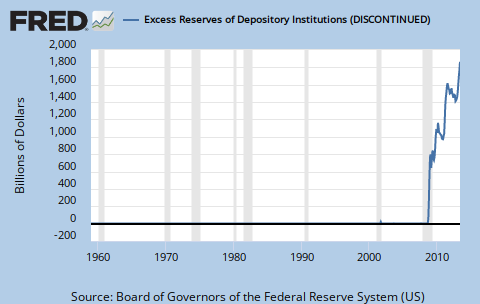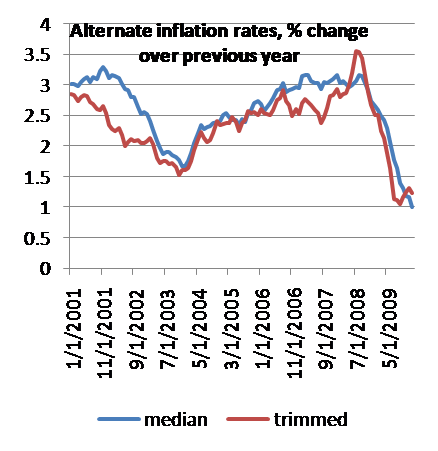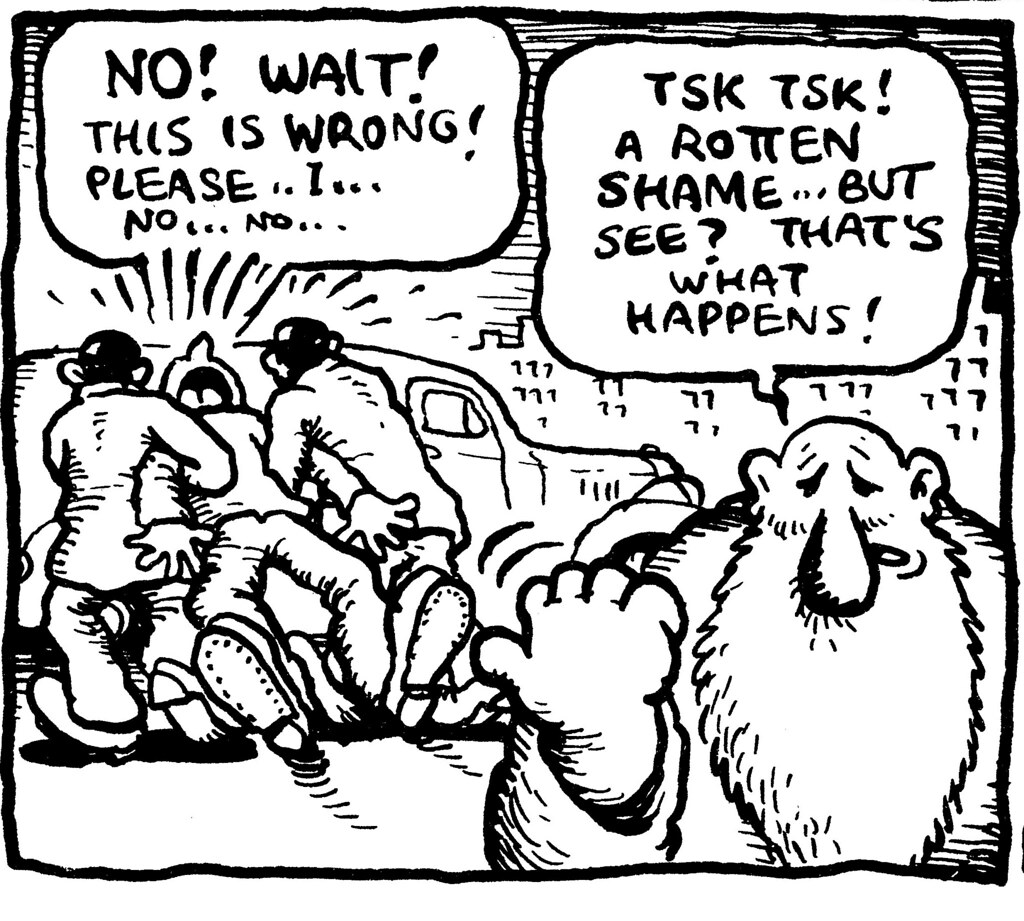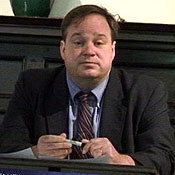
You always like to find an edge where the fabric holding us all in our "one big world" rips apart easily, revealing the scam under the blanket-toss, so to speak. Here's one deluded soul not quite breaking all the way through:
"To be honest, sometimes I feel that I’ve spent most of my adult life knocking down the same misunderstanding, over and over again. I wrote about more or less the same issue more than 20 years ago:
There is a widespread view that world payments imbalances can be remedied through increased demand in surplus countries and reduced demand in deficit countries, without any need for real exchange rate changes. In fact shifts in demand and real exchange rate adjustment are necessary complements, not substitutes."
That's a reaction to Steve Roach -- bigtime bankers' "economist" -- and
his Rx for the presently imbalanced global trade and finance system. Seems Steve is opposed to currency adjustments; instead he prescribes some carefully calibrated differential national rates of expansion... Meaning? Well, as an example: 'keep up the stagnation here in Norte America and get back to boomin' over there China way.'
Intended result: the bilateral trade gap doesn't explode again, leading to -- what else -- pleb cries to uncle for some "goddam protection, fer chrissake, they're killin' us here, killin' us!"
Dr Roach is really just pulling the old Bretton Woods remedy bottles down off the shelf. Way back when -- despite their obvious brutality -- they were at least plausibly "appropriate". In a fixed exchange regime like the globe had for the first 26 years after WWII, if you want to keep the fix in fixed exchange you try absolutely everything before you adjust your rate. Almost "euro zone for everyone," you might say. (Why Bretton Woods blew up is another story, one with Yankee gold in its lining, in fact.)
Why that old paradigm now? Haven't we escaped that confounded booby trap of a system, with all it's expansion- and prosperity-choking bits and bridles? Why act as if the harness is still in place? We got a flexible system today, and have had it for over 35 years, and we know that forex flex is great for macro jobs management.
Look what a good strategic devaluation did for Sweden in the 90's, after a wickedly deep financial crisis threatened to derail the prized Swedish social model. Instead of swallowing hard, like Ireland is doing, Sweden devalued -- massively. Result: a fast robust recovery:
"... the Swedish share of exports in gross domestic product rose from about 27 per cent to 52 per cent today. Previously, that share moved in the range of 20 to 30 per cent. In the past four years alone, this ratio went up by almost 10 percentage points.
The reason for this tectonic structural shift lies almost entirely in the real devaluation of the krona.... After Sweden abandoned the peg against the ecu, the former European basket currency, in 1992, the krona’s effective real exchange rate depreciated by 30.7 per cent compared with today. The real devaluation of the krona provided Swedish export industries – electronics, heavy engineering, cars and trucks, forestry products, among others – with an invaluable boost to their competitiveness. The renaissance of Swedish manufacturing industry is not a tribute to the quality of Swedish management, as it is sometimes claimed in Sweden. It is a real devaluation story first and foremost."
Imagine if Sweden had to pull that off with the limitations that say. Portugal or Ireland face today. Yup, job drought and credit crunch for Inga here:

... so then why inflict needless punishment on the millions out there just like her -- well, maybe not quite like her -- if a simple Swedish adjustment would set the whole ball o' wax back on the prosperity track?
Let 'cui bono' be your guide. There are folks that just happen to like the present pseudo-fixed setup just fine.
Take a look at what are called purchasing power parity(PPP) tables to lay it all out in numbers. These tables compare, at existing exchange rates, one universal basket of products across currencies. After a little grouping and comparing you realize there's an astonishingly clear pattern here, a systematic inter-hemispheric forex tilt; not just a few anomalies, but a full set of exchange rates permanently off kilter in the same way.
Using PPP comparisons, you find -- and this persists through time -- north currencies buy more of the indexed products at existing exchange rates. That is: the dollar at the moment exchanges for 12.5 Mexican pesos. So you's expect that 12.5 pesos would buy about as much rice, or electricity, or soap, as one dollar, right?
Wrong. In fact 12.5 pesos buy a Mexican less soap or whatever than a dollar buys an Amurrican. And this is not a fluky, transitory affair, a matter of hysteresis or stickiness. It's permanent and institutionalized.
The great political economist David Ricardo -- father of us all, in some respects -- long ago was forced to assume no tilt could exist, in order to convince his countrymen to open their harbors to unrestricted foreign trade. Any tilt would automatically disappear. If 12.5 pesos today buys less soap than a dollar, then the exchange rate has to change tomorrow and the peso has to drop relative to the dollar.
If Ricardo faced today's world market he'd have to assume reality away. So what keeps these anomalies in place?
Back to our cui bono: what if that systematic north/south tilt produces vast profits for cross hemisphere traders -- profits that come in and apparently keep on coming in and coming in so long as the tilt shall last. The correction Ricardo made instantaneous is here postponed indefinitely.
Mr PAINE, for The People: At this point, your honor, may I call the cross border corporations to the stand?
[The DEFENDANTS are sworn]
Mr PAINE: Gentlemen, I draw your attention to the present reality outside this courtroom. Is it not true that out there, humble smurf-like Americans today face a brutal bonesnapping nightmare, an endless season of misery where job dearth and debt are mocked by a willful credit drought? And sirs, is it not also true that for you clever grasping souls this present utterly contrived stagnation is well... you know... from where you sit... a most necessary and indeed salutary part of the best of all possible games on the planet?
The DEFENDANTS: You don't understand... it's not that simple --
Mr PAINE: A simple yes or no will suffice.
The DEFENDANTS: Err... ummm... yes.
Crowd grows restless, there is the sound of the gavel as we fade to black....
* * * * *
We began with a quote from that national treasure in a pocket protector, Paul Krugman. Once more, with feeling:
"There is a widespread view that world payments imbalances can be remedied through increased demand in surplus countries and reduced demand in deficit countries, without any need for real exchange rate changes. In fact shifts in demand and real exchange rate adjustment are necessary complements, not substitutes."
Yet -- amazing! --
"Sometimes I feel that I’ve spent most of my adult life knocking down the same misunderstanding, over and over again."
Despite Krug's efforts to enlighten them, guys like ole Steve Roach here appear to dwell in the dark ages of the science. How odd.
Krug never wonders whether this might be a mask Roach wears. With all his brightness and probing self-confident merit-badge boy wonder's curiosity, Krugman just can't quite poke his finger all the way through the seam here, and ask, Cui bono?
So he can't figure out why this nonsense persists: Why don't they grasp what's at stake? Why this persistent stubborn -- willful almost -- inability to see the need for currency devaluation and revaluation? Why, how else can you restore global trade balance? Why do those overpaid monkeys, those goddam PTB quack Merlins, even after all the formal models we've built to the contrary these last 35 years -- why why why do they still crave a more or less Bretton Woods-y straitjacket(*)?
Unlike Paul, we dumbclucks here at SMBIVA -- some of us at least -- know why they persist in their know-nothingness. O Paul! Behold the secret motor of globalization, the gigantic hypergizmological global money market casino. Behold the forex rigs imperious that sustain the fabulous transoceanic profit slurry, as it runsmiraculously and perpetually uphill from the economic south to the economic north.

* * * * *
To get a gander at the Atlas under this apparatus, imagine that post war international trade operated a two track game. On one track. the system was building one big market earth by knocking down all sorts of official trade barriers. But on another track just as fast as the old state-erected barriers came down, the MNCs, by way of various shadowy moves, scooped up the proceeds that formerly would have gone into tariff revenue and higher prices and protected domestic firms' profits. Forex fiddlin' played a star role in facilitating this stealthy extraction by the MNCs, and gave us a rigid irrational global welfare-reducing non-adjusting devil's own brew of exchange rates -- the apparently paradoxical prize product of all the free-trade one-worldism ballyhoo.
It's been operating in one way or another ever since Clement Attlee had his family jewels removed in '46, and give or take a few easy topological contortions, it still looks today pretty much as it did back then.
Oh there's more ways than this to peel the world, of course; many, many more ways; and the MNCs use 'em all. But this gimmick here, the big tilt at the main tables, is the deepest chamber in the soul of market earth.

-----------------
(*) Without, of course, the dollar tie to gold, Nixon the Great and Terrible be praised.
 Over at one of Father Smith's mailing-list lurkeries,
I just found a mighty lucubration from the powerful intellect of Professor Immanuel Wallerstein:
Over at one of Father Smith's mailing-list lurkeries,
I just found a mighty lucubration from the powerful intellect of Professor Immanuel Wallerstein:





















 Old warhorse Bob Gordon, sachem of the all-too-numerous Gordon clan of
academical economists(*), has reached forecasting conclusions tinctured
with a protracted gloom even beyond the fondest fantasy of our claque of
poison-pond pwogs.
Old warhorse Bob Gordon, sachem of the all-too-numerous Gordon clan of
academical economists(*), has reached forecasting conclusions tinctured
with a protracted gloom even beyond the fondest fantasy of our claque of
poison-pond pwogs.











 I have an exceedingly low regard for Aussienomics, and I hope you all do
too!
I have an exceedingly low regard for Aussienomics, and I hope you all do
too!






